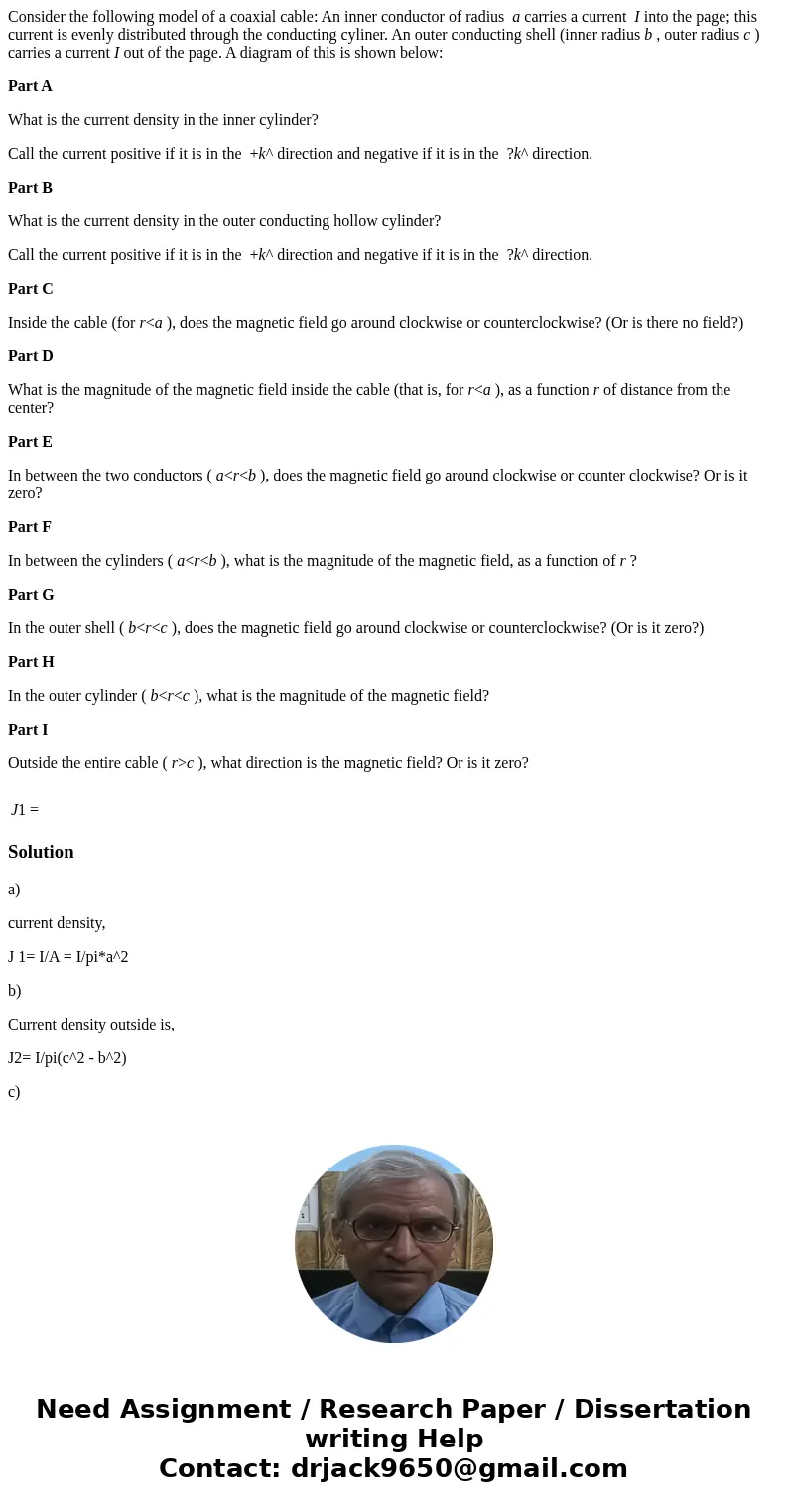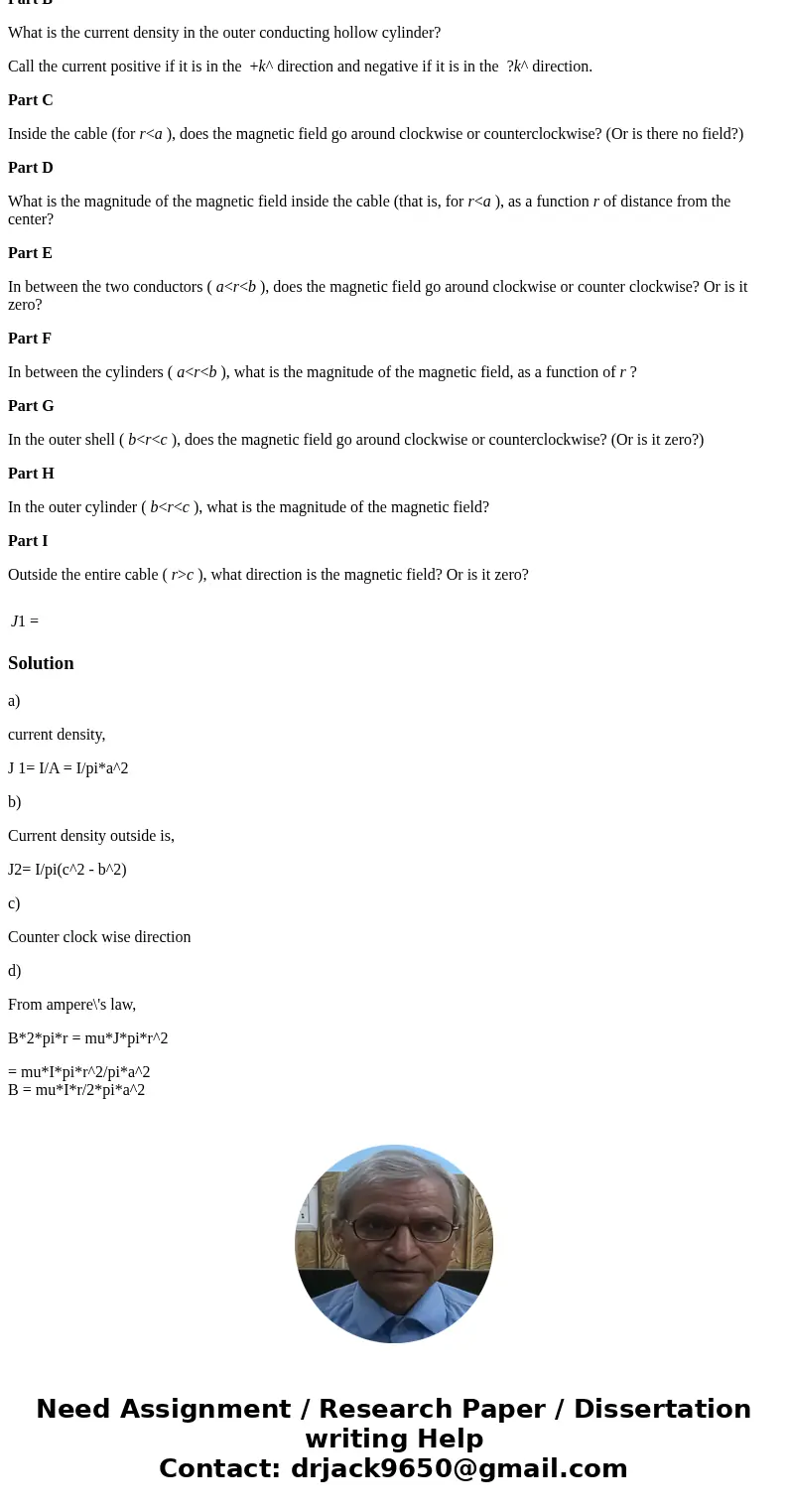Consider the following model of a coaxial cable An inner con
Consider the following model of a coaxial cable: An inner conductor of radius a carries a current I into the page; this current is evenly distributed through the conducting cyliner. An outer conducting shell (inner radius b , outer radius c ) carries a current I out of the page. A diagram of this is shown below:
Part A
What is the current density in the inner cylinder?
Call the current positive if it is in the +k^ direction and negative if it is in the ?k^ direction.
Part B
What is the current density in the outer conducting hollow cylinder?
Call the current positive if it is in the +k^ direction and negative if it is in the ?k^ direction.
Part C
Inside the cable (for r<a ), does the magnetic field go around clockwise or counterclockwise? (Or is there no field?)
Part D
What is the magnitude of the magnetic field inside the cable (that is, for r<a ), as a function r of distance from the center?
Part E
In between the two conductors ( a<r<b ), does the magnetic field go around clockwise or counter clockwise? Or is it zero?
Part F
In between the cylinders ( a<r<b ), what is the magnitude of the magnetic field, as a function of r ?
Part G
In the outer shell ( b<r<c ), does the magnetic field go around clockwise or counterclockwise? (Or is it zero?)
Part H
In the outer cylinder ( b<r<c ), what is the magnitude of the magnetic field?
Part I
Outside the entire cable ( r>c ), what direction is the magnetic field? Or is it zero?
| | |||
| J1 = |
Solution
a)
current density,
J 1= I/A = I/pi*a^2
b)
Current density outside is,
J2= I/pi(c^2 - b^2)
c)
Counter clock wise direction
d)
From ampere\'s law,
B*2*pi*r = mu*J*pi*r^2
= mu*I*pi*r^2/pi*a^2
B = mu*I*r/2*pi*a^2


 Homework Sourse
Homework Sourse